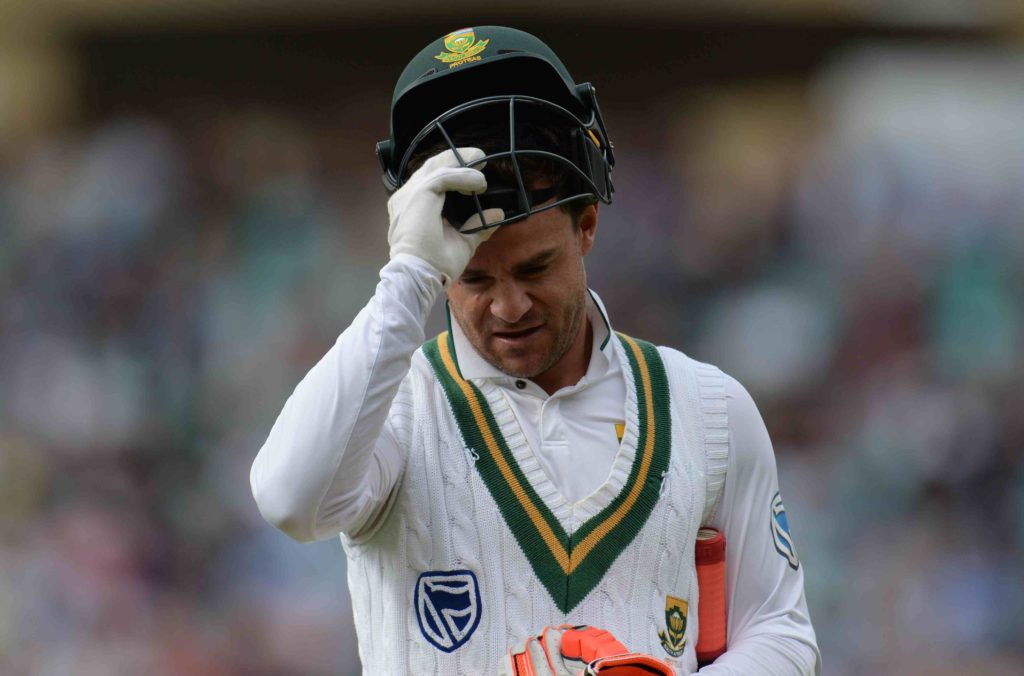A lack of significant individual scores and partnerships continues to compromise the Proteas in big Tests.
Remember when the Proteas won the Tests series in New Zealand earlier this year? The result did nothing to answer the questions around the team’s erratic top six.
I highlighted the dearth of significant individual scores at the conclusion of that series. Dean Elgar and Faf du Plessis carried the top order. Quinton de Kock made some crucial contributions down at No 7. However, as far as partnerships went, the top-six batsmen were involved in a mere six stands that yielded 50 runs or more.
Six months later, and the batsmen have come in for more criticism in the wake of the Proteas’ crushing 3-1 series defeat to England. Once again, the meagre contributions of the top and middle order have compromised the team’s ability to post substantial totals, apply the pressure, and win matches.
ALSO READ: We don’t have balance – Faf
Opening bowler Vernon Philander finished the four-match series in England with South Africa’s highest batting average (44.25). Apart from Hashim Amla (41.13), none of the players who featured in the top six managed to average over 40.
The England bowlers deserve some credit. James Anderson and Stuart Broad made excellent use of the conditions. Moeen Ali’s off-spin troubled the best of the South African batsmen. In fact, Ali took more top-six wickets than any other England bowler (11) across the four-game series.
But to accept that only one player in that top six was capable of averaging more than 40 in those conditions is to accept mediocrity. The Proteas had their problems in New Zealand earlier this year. The stats of the recent series in England suggest that there’s been little to no progress.
JP Duminy averaged 20.80 in the series against New Zealand. He received the axe after failing twice (with scores of 15 and 2) in the first Test against England.
Elgar was the only player to score a century over the course of the series. However, an average of 36.30 confirms that he blew hot and cold at the top of the order.
Amla, Temba Bavuma (32.13) and Faf du Plessis (28.50) were similarly inconsistent, and none of them managed to push on to get a ton. De Kock (23.13) scored one half-century. Heino Kuhn (14.13) battled throughout the series and is unlikely to feature in the big Tests against India and Australia.
The top six batsmen were involved in partnerships of 50 runs or more six times across the three-Test series against New Zealand. In the four-game series against England, these batsmen clubbed together for seven stands of 50-plus (including four of 100 or more). That’s not a lot to shout about.
We all saw how the players battled to maintain their concentration out in the middle. We all saw how poor decision-making often led to soft dismissals and ultimately to South Africa finishing with low totals.
Elgar and Kuhn averaged 13.65 for the first wicket. The Proteas averaged 42.38 for the second wicket, 26.75 for the third, 34.13 for the fourth, and 39.63 for the fifth.
It’s little wonder that South Africa failed to dominate England with the bat. Effectively, they were 156-5 when the first of the all-rounders, either Philander or Chris Morris, came to the wicket.
Stephen Cook was axed after the New Zealand series. Duminy, and probably Kuhn, won’t feature in the big games this summer, following their weak performances in England.
ALSO READ: Bring back AB, says Shaun Pollock
How the new Proteas coach is going to strengthen that batting line-up, is anyone’s guess. Recent reports have suggested that AB de Villiers won’t return to Test cricket. Rilee Rossouw, now with English county Hampshire, also appears to be lost to the national side. If both of these players were available, the Proteas would go into those series against India and Australia with a reason to be excited.
Much has been made about Aiden Markram slotting in for Kuhn at the top of the order. The 22-year-old is a great talent and deserves the chance.
That said, it would be unfair to expect an inexperienced youngster to come in and solve all of the Proteas’ problems. As we’ve witnessed over the past year or so, the batting woes run deep.







